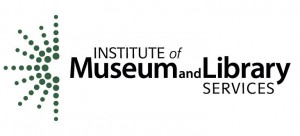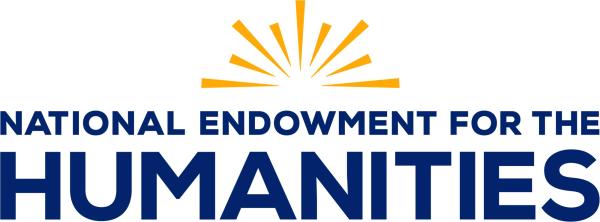Day 1 of the ANADP II conference began with opening remarks from Martin Halbert.
- He noted that the conference was intended to be not just presentations but engagement of community in exploring collaborative opportunities — promoting voluntary alliances, not top-down.
- The first conference (ANADP I) was an experiment… and so is this one.
- The final chapter of the ANADP I proceedings volume serve as an agenda for potential collaborations
- Then he outlined the structure of the conference: panels of experts and plenaries, followed by breakout action sessions
We were also warmly welcomed by Ferran Mascarell, the Ministry of Culture of the Government of Catalunya, and Lluís Anglada, of the Consorci de Biblioteques Universitaries de Catalunya.
Our opening keynote was by Clifford Lynch of the Coalition of Networked Information.
Lynch closed the previous ANADP conference, so he opened up this one by giving us some paths to follow.
He began by noting that there was progress made, and opportunities shifted from the last meeting.
- We must keep asking : What are we missing?
- 2 pieces are key: 1) Reflection on alignment and its implications and 2) Areas of alignment from last time and how we supplement them
About Alignment:
There is endless talk of collaboration. Everyone is comfortable with that, which leads to a lot of talking. Often, though, we come up to a barrier: that of interdependence, which is a serious threshold for an organization, because it means that failure elsewhere could affect YOUR services. This is a difficult threshold to cross. In the US, we tend to set up consortiums and umbrella organziations rather than agreeing to multilateral interdependence.
We need to be thoughtful about crossing that threshold.
- CLIR group — Committee on Coherence at Scale have similarly echoed these themes: interdependence, infrastructure, and sustainability.
- Fruitful conversations have happened between siloed projects, specifically those linkages between access and preservation/storage.
- The language of NATIONAL approaches, especially internationally
Alignment as a concept gives us room to move without crossing the interdependence barrier: common values, goals, and themes can be a powerful force for progress. Of course, there is always more to do than the resources available.
The challenge to the conversation re: national approaches is WHO speaks for a nation in Digital Preservation, particularly when we look at the cultural heritage landscape? A broad version of the cultural record: science, arts, government, creative, etc. needs to be considered.
Preserving our cultural record crosses more than the library sector: ‘major’ universities, Library of Congress, governmental sector as well. Digital Preservation also involves archives, libraries and museums–all of which may have strong siloes in place when they (say) report do completely different ministries in their countries. It’s not just LAM, either: what about public broadcasting? Big Data/Big Science? National Academies? NDSA? LIBER?
There is room for coordinated approaches, communicated with a shared voice.
Areas of alignment for our consideration:
Legal Issues: We really need to coordinate these. Can we agree effectively on common principles & goals for national legistlation? Sweeping principles needed, to create public policy initiatives for cultural heritage and digital preservation of it. At an organizational level, there are a number of other areas with elements to be examined and coordinated–economic, legal, etc. Such as mirroring materials between countries (happening from the ground up in some countries already). Brewster Kahle at the Internet Archive has been a leader in this. Can we make it easier to mirror collections across contexts without needing to re-clear rights, etc.?
Transitions of Stewardship: Licenced access to scholarly journals include community mechanisms for ‘escrow’: PORTICO, CLOCKSS, etc. The DPN is looking at succession arrangements for deposited materials. What happens when an organization fails? Especially in less elite 4-year institutions in the US?
Scholarly & Scientific Data: Availability of data for 10 years (often dictated by granting agencies)–then what? Who reassesses it?
Technical issues: Common tools and infrastructure. Benchmarking. Security & Integrity. Do we not have data breaches?
Standards: Specific places need them, sure, but they are not broadly necessary in all cases. Best practices and guidelines are being sold as standards: TRAC is valuable, but it should also be amendable. Best practices are pliable.
Economies: The nightmare of sustainability. We weep together and share, mostly. There’s a connection between making our case and sustainability, which is often code for “somebody else pay for this, please!.” Sometimes, the right answer is to argue public good and public heritage. Outsourcing & fees is not always the right answer, and disinvestment in US education has been particularly rough.
Audiovisual Preservation: Much A/V is predigital, getting converted. This is just a big old mess. Specialized knowledge and equipment required, and interdependency likely will be required, as the media is just rotting away, the equipment is obsolete, and time is against us.
Big Data/Datasets: Do we get scale & level of investment yet? Memory organizations are full of ephemera (like catalogs and airplane schedules and menus that give a sense of the history of manufacture. These used to be easy to capture. Now they hide in web databases. Traditional web archiving doesn’t grab them. In the aggregate, they represent a big loss of historical knowledge.
News: Every nation collects, but it’s not paper anymore, but databases that are held and discarded. Even if we preserve it, how do we share it? Large organizations–PBS plus Government plus organizations–these represent huge problems, and that doesn’t even take into account personal digital archiving/digital lives.
Collecting policies: We need to know what others are doing, and measure how well we’re doing. What percentage of the cultural record are we actually preserving? Journals? Ebooks? Surface web? We need to agree roughly on how to count, so we can figure out where we are. The Public & Policymakers don’t understand the scale of the digital preservation problem or the seriousness of its results. We can’t be perfect, but we need to get enough coverage. We need strategies for making the case, that explains the necessity for policy and resources together. We can’t solve it with money alone. It must be paired with policies and copyright law, etc.
This is a moment of real opportunity. The public is recalibrating their relationship to their own digital lives: they are now noticing that photos, ebooks, music, etc. don’t stick around. There is a growing stream of individuals heading to their local libraries to figure out how to maintain their stuff.
Questions from the audience:
Q. Does the need for standards automatically equal interdependencies?
A. We RUSH to standards, sometimes, rather than being flexible. We need to prioritize where we need them and where we don’t. Example: UNESCO: making the case for DP–the last meeting had government & business people discussing the problem, but not memory institutions. We need to push back, to publicize.
Q. Advocacy presupposes that we’re speaking with one voice. We don’t have a good history of doing that so far.
A. We hope to find one voice at a high level, at least…
[end of first plenary session]



3 comments
A point to keep hammering to anyone near us: “Memory organizations are full of ephemera” and it is just that kind of unique content that keeps people connected to their histories and our institutions. If we can’t care for it, no one will!
The most hopeful comment in these notes? That there are a lot of people talking about sharing workflows/responsibilities.
The scariest thing mentioned above? What if one spoke in the wheel fails/collapses/can no longer participate? Can’t we build in redundancy at this step, though, to mitigate the impact of any single failure?
My immediate next thought: Good grief, what a logistical nightmare!
Author
The fear is shared among ALL of the attendees, which is a good thing. That means that NONE of them want that to happen, but they recognize that it’s *possible*, and they’d prefer to have some strategies ready when it does. This is better than a nasty surprise, I think…
Everyone loves what you guys are usually up too. Such clever work and
coverage! Keep up the very good works guys I’ve incorporated you guys to my personal blogroll.